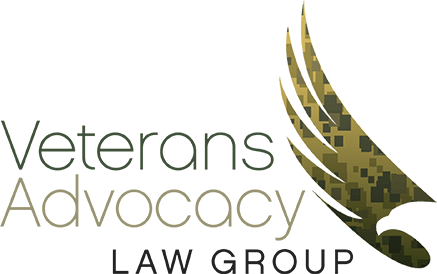Joint ventures are not uncommon in the business world. Individuals, groups of individuals, companies or corporations can make up a joint venture. People create joint ventures for many reasons including combining resources and/or expertise or saving money. The contract between the parties establishes how the venture will be managed and how control of it, including profits and losses, will be divided. The contract also outlines the resources each party will bring to the venture.
After a joint venture is established, a Joint Venture Agreement (JVA) is created detailing the parties in the agreement, the management structure and members, ownership percentages, distributive shares allocated to each party, banking details, a list of resources each party will provide, employees who will work on the venture, administrative and financial information, and which state’s laws will apply to the joint venture. Although the JVA can be detailed, a generic JVA or an old JVA with generalized terms does not address specific rules surrounding a Service-Disabled Veteran-Owned Small Business (SDVOSB) set-aside contract or project. The below appeal by Veterans Contracting, Inc. (VCI) illustrates how a generic JVA led to a costly mistake.
Veterans Contracting, Inc. SBA Appeals No. CVE-107, 2019 (S.B.A.), 2019 WL 1917136
Decision issued April 10, 2019
The Solicitation
On November 20, 2018, the U.S. Department of Veteran Affairs (VA) issued an invitation for bid (IFB) for a construction project at the Louis Stokes Cleveland VA Medical Center in Cleveland, Ohio. The project was a set-aside for SDVOSBs and assigned the North American Industry Classification System (NAICS) code 236220 with a corresponding size standard of $36.5 million average annual receipts. Bids were due to the VA on December 20, 2018. CR Nationwide, LLC – Trumble Construction, Inc. JV1 (CRNTC) was awarded the contract.
The Protest
On the same day the VA awarded the contract to CRNTC, VCI – a standalone SDVOSB company who also bid on the IFB - filed a status protest with the Office of Hearings and Appeals (OHA) claiming CRNTC should not have been awarded the SDVOSB set-aside project because the company’s joint venture violated the SDVOSB set-aside rules for what needs to be included in the Joint Venture Agreement (JVA).
The Joint Venture
CRNTC is comprised of two separate companies, CR Nationwide, LLC (CRN) and Trumble Construction, Inc. (TCI). CRN is a verified SDVOSB construction business, while TCI is not an SDVOSB. In order to pursue SDVOSB set-aside contracts, CRN and TCI entered into a written JVA.
The original JVA broadly required CRN and TCI to work together to submit a joint statement to any contracting officer (CO), itemizing all equipment, facilities, and resources each party would furnish on a project; how negotiations would be conducted; where labor would be sourced from; and how the contract would be performed. The JVA did not outline how each component would be handled and/or by which company and was therefore flexible enough to fit many different types of projects and bids.
When the IFB for the Cleveland project was requested, CRNTC submitted its bid but did not include a new JVA specifically crafted for the project. The bid also did not include a joint statement outlining the equipment, facilities, resources, labor sources, and process for negotiating/performing the contract as required by the original JVA.
The Outcome
SDVOSB set-aside rules require any JVA to include a specific breakdown of the responsibilities of each partner of the joint venture concerning contract performance, source of labor, and negotiation of the contract. In addition, the rules require the JVA to itemize all major equipment, facilities, and other resources each partner of the joint venture will provide during the project along with a detailed schedule of the costs or values of each item.
The SDVOSB set-aside rules specifically require at least 40 percent of the work on an SDVOSB set-aside project, including more than merely administrative or ministerial functions, must be performed by the SDVOSB partner in the joint venture. This information must be included in the JVA at two specific moments in time: (1) when the joint venture submits its bid or initial offer including price and (2) on the filing date of any bid protest by a competitor that loses a bid to the joint venture.
Under the SDVOSB set-aside rules, the JVA must include all required information before a bid is submitted to the CO. It does not matter if the joint venture partners eventually work out an agreement that complies with all rules after the fact. Since CRNTC did not include the detailed descriptions, itemized lists, and schedules of costs/values in its JVA at the time of bidding, OHA could not determine whether CRN, the verified SDVOSB company in the joint venture, would perform the required 40 percent of work. Based on this, the OHA agreed that CRNTC violated the SDVOSB set-aside rules and ruled against them.
The Takeaway
A JVA is an important legal document in any joint venture relationship, but it takes on even greater importance if you are an SDVOSB company seeking to bid on an SDVOSB set-aside project with another non-SDVOSB company. A typical JVA used for pursuing non-SDVOSB set-aside contracts or a pre-existing JVA with your partner company(ies) will not work. A JVA specifically tailored to every SDVOSB set-aside project you are pursuing as a joint venture needs to be included with the bid. Ensuring your JVA includes every requirement under the SDVOSB set-aside rules before you submit your bid, may save you from investing a huge amount of time and money in winning a contract that could be protested.
If you are going to bid on an SDVOSB set-aside as a joint venture with a partner organization and need a JVA tailored to your specific project, contact us. Whitcomb, Selinsky, PC has a team of experienced attorneys ready to help.
If you are a Veteran with a business and have a question on an SDVOSB set-aside as a joint venture with a partner organization and need a JVA tailored to your specific project, please contact the experienced attorneys at Veterans Advocacy Law Group at (888) 680-9612 or complete an online contact form.

